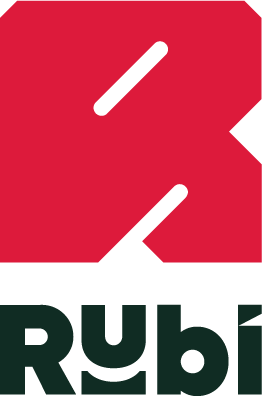The IPM RUBI Group expresses its respect and concern for the protection of the environment and sustainable development and undertakes to develop its activity by applying the necessary resources to deal with them effectively.
Given its industrial activity, IPM RUBI is aware of the influence it has on the environment and its surroundings and keeps a strict watch over them, promoting clean energies, proper waste management and minimising impacts.
Although our activity makes us a group with a low environmental impact, our commitment to the environment is reflected in our integrated management policy and in the application of good environmental practices in all our plants. These environmental practices have their origin in the Environmental Management System, implemented and externally certified.
The group’s integrated management policy establishes as a basic principle of action:
- Respect for the environment surrounding us.
- The goal of zero environmental risk.
With this vision, it is the management system that develops concrete actions in the form of processes and procedures with the objective of:
- Comply with applicable environmental legislation.
- To reduce the impact of our activities on the environment as much as possible.
- Prevent pollution in our activities.
- To constantly apply continuous improvement in our environmental management.
All the Group’s plants have a management system certified under the ISO14001 standard. They are managed in accordance with the ISO 14001 standard:
- General management, establishing the integrated management policy, allocating the necessary resources and reviewing compliance with the system’s plans, objectives and targets.
- Plant management.
- Plant environmental managers.
- The system is audited both internally and externally and since 2011 all three Group plants have been certified by the certification body TÜV SÜD.
- With the demands on our suppliers.
The IPM Group requires all its suppliers to have accredited certification under ISO14001 or other certificates considered equivalent. A transitional period of three years is established for those suppliers who do not comply with this requirement at the date of issue I of this document. In the meantime they shall:
– Answer our self-evaluation questionnaires.
– Carry out a certification plan to be validated by our QSA area.
- By optimising energy consumption and gas emissions, as well as by increasing the use of renewable energies.
The main energy consumption comes from the consumption of electricity and natural gas to supply the heating system. In the case of electricity, in order to improve energy efficiency at the Group’s three plants, consumption is monitored at each facility and piece of equipment.
Today, 100% of the electricity consumed in the three plants is of renewable and certified origin.
In addition, in order to continue minimising electricity consumption, a photovoltaic solar installation for self-consumption has been installed.
- With water quality and consumption, by reducing water use, recycling and treating wastewater.
The Group is aware of the need for responsible water use. It therefore promotes rational consumption in our activities and monitors water consumption. Water consumption at the three plants is mainly for sanitary use and for the closed cooling circuits of the facilities. 100% of the water consumed comes from the public network and discharges to it comply with the legislation applicable in each geographical area and are periodically controlled.
- With the management of natural resources and waste reduction, encouraging the use of sustainable, renewable, reusable and recycled natural resources.
The annual management review analyses whether the quantities have been increased or reduced compared to previous years, and environmental objectives are defined annually for those aspects that are significant.
- With responsible chemical management, by identifying and limiting the use of restricted substances and actively seeking possible substitutes.


